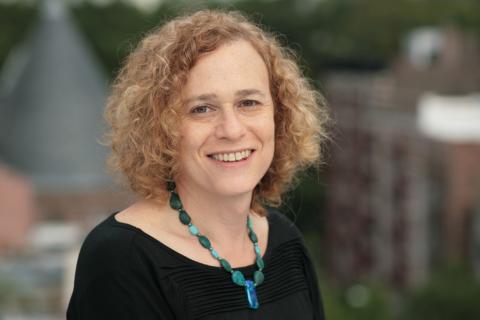
Joy Ladin is the author of 10 poetry collections, including the forthcoming Shekhinah Speaks (Selva Oscura Press, 2022) and The Soul of the Stranger: Reading God and Torah from a Transgender Perspective.
Posts By This Author
Awake
A poem.
“Awake, awake …
clothe yourself with strength!”
—Isaiah 52
“What Really Happens When You’re in a Coma”
—Cosmopolitan (Feb. 5, 2019)
You dream I’m looking down on you
like a light on a ceiling
as though you are a thing
and I am a thing,
a light you aren’t,
shining down
on a body
you can’t escape
even in dreams, like this one
in which you dream
you’re awake, trying to awake
to the light that holds you together
Meeting God Beyond the Gender Binary
How the Bible affirms transgender and nonbinary people.
TRANSGENDER PEOPLE HAVE become a flash point in America’s culture wars, particularly in communities and institutions based on religious traditions that see the gender binary—the idea that human beings are always, and only, male or female—as a fixed theological principle rather than a mutable feature of human culture. The statement that God created human beings “male and female” (Genesis 1:27) is often cited as the basis for this belief, interpreted as meaning that binary gender is a divinely determined aspect of humanity—and transgender and nonbinary people, therefore, are not.
From this perspective, the gender binary is a cornerstone of the Divine-human relationship, a way in which God’s conception of humanity is reflected in our bodies, our intimate relationships, our families, customs, rituals, and communities. Transgender and nonbinary people—people like me who do not identify as the gender associated with the sex of our bodies—must either be deluded or heretical, misunderstanding who God means us to be, or consciously rejecting the Divine-human relationship and opposing the divine order of creation.
Whatever our motivations, our claims that human beings can really “be” transgender or nonbinary, and that such identities should be acknowledged and respected, are seen as posing an existential threat to the religious traditions that safeguard the sacredness of family, community, and humanity.

